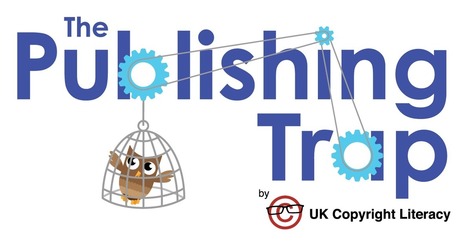Building on recent work in the sector in the area of skills for those working in scholarly communication and open access roles, we ran a workshop in York in February “Developing a skilled workforce: the skills needed to support scholarly communication and open access”.
Intended to be interactive and practical – the workshop provided an opportunity to shareissues, concerns and practices, to give feedback on existing activities and to shape future activity.
Via Elizabeth E Charles



 Your new post is loading...
Your new post is loading...








